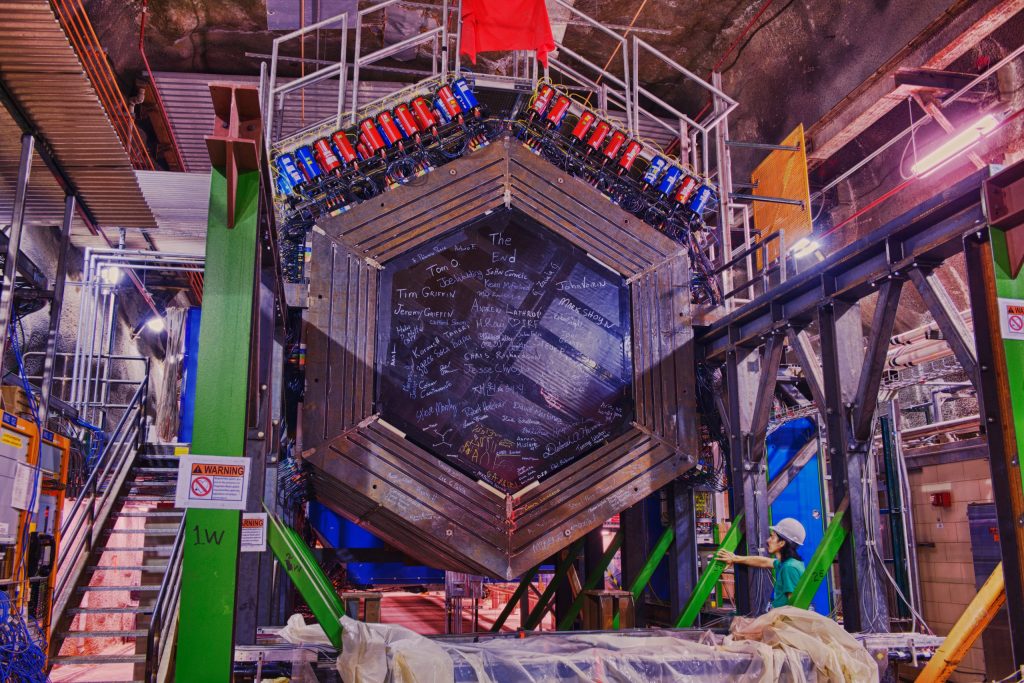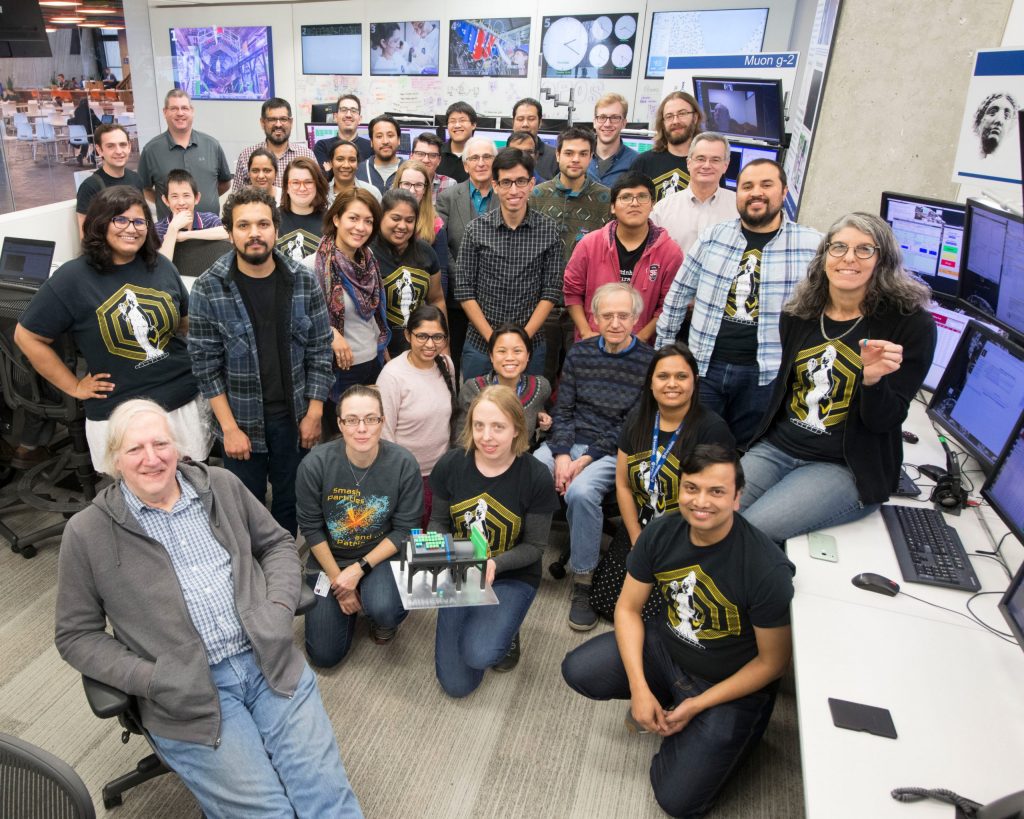
The MINERvA experiment at Fermilab was designed to make many precised measurements of neutrino interaction cross-sections. MINERvA took data between 2009-2019, and the MINERvA collaboration, including students in our group, are currently in the process of analyzing 10+ years of MINERvA data.
Undergraduate students at the University of Notre Dame are studying neutrino-induced pion production, a process that will make up the majority of signal events at DUNE. Professor Fields also serves as Co-Spokesperson of the MINERvA experiment and supervises a graduate student at the University of Guanajuato, who is also studying pion production.
